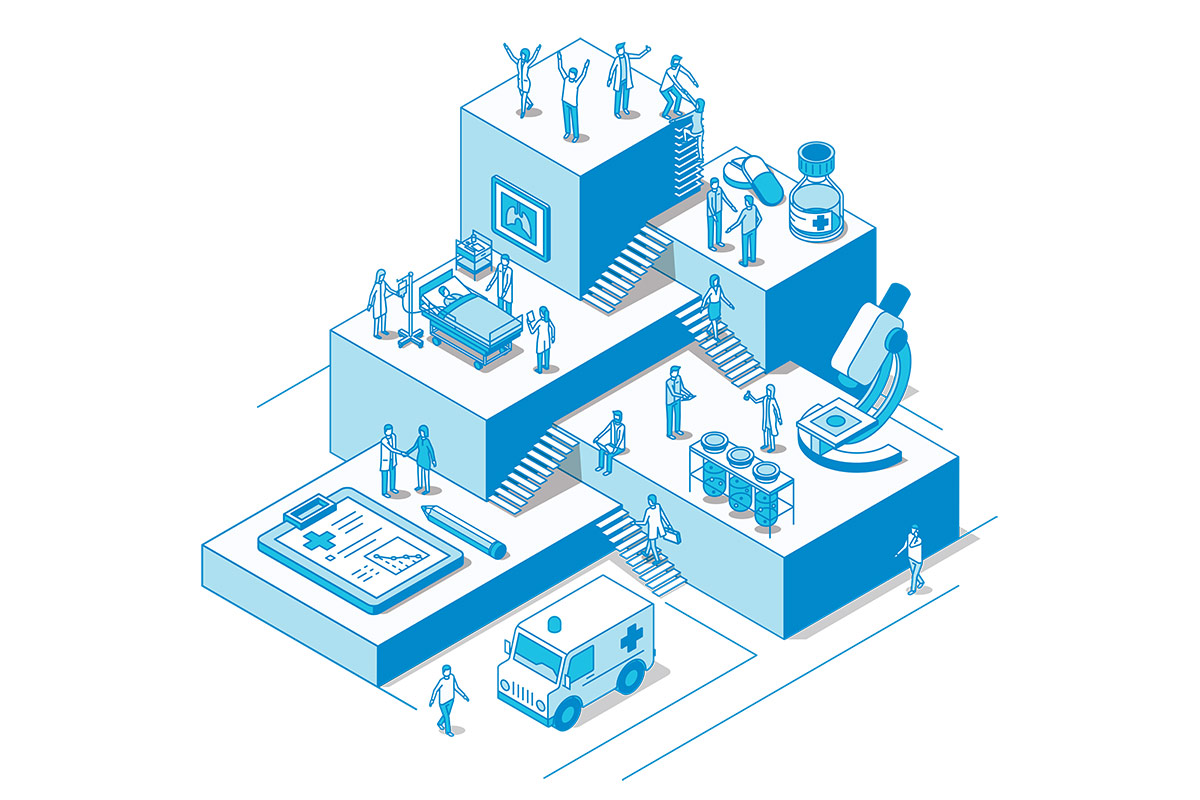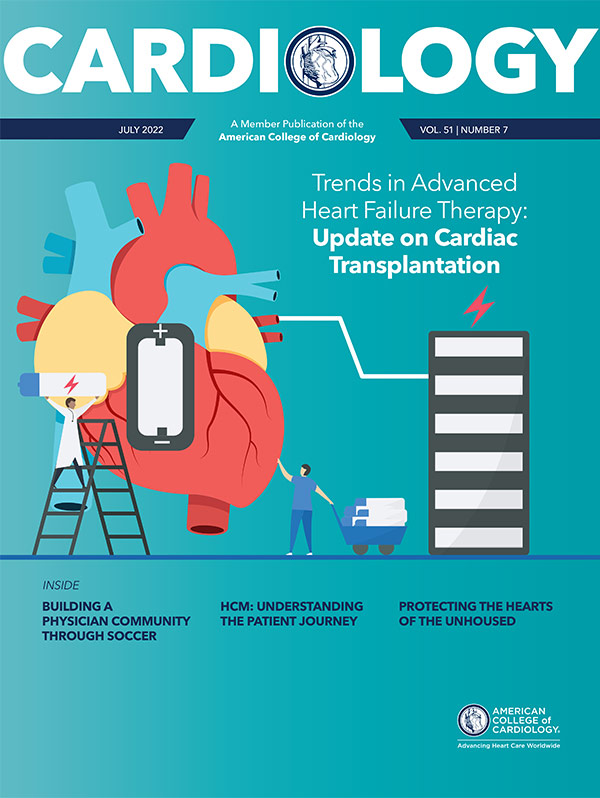The Patient's Voice | HCM: Understanding the Patient Journey From Diagnosis to Treatment

As with any disease, the first step towards treatment starts with a diagnosis. Along with feeling seen and heard, starting to have answers helps to relieve concerns and empowers patients to manage their symptoms. Unfortunately, for patients with hypertrophic cardiomyopathy (HCM), the gap between the onset of symptoms and official diagnosis can be long and frustrating. A survey of patients with diagnosed HCM conducted by the ACC and the Hypertrophic Cardiomyopathy Association (HCMA) offers a closer look at some of the challenges along the path to HCM diagnosis and management in an effort to close this gap and optimize care and outcomes.
According to estimates, between one in 500 and one in 250 patients have HCM, but only about 100,000 patients have been formally diagnosed with the disease. One reason could be the disparities in cascade or family screening, which could catch HCM before symptoms appear. Of the 608 patients surveyed, only 13% had pursued medical care because a family member was diagnosed with HCM or experienced a sudden cardiac arrest, while only 10% listed a family history of heart disease as their reason for seeking a medical appointment. Notably, only a very small number of those surveyed took part in cascade or family screening (3%) or genetic testing (14%).
In contrast, experiencing symptoms consistent with HCM was the most common reason (for 89%) for seeking medical care: dyspnea in 48%, heart murmur (36%), arrhythmia (35%), dizziness (35%), reduced exercise capacity (27%) and fatigue and weakness (27%). Chest pain/pressure when exercising as well as chest pain/pressure at rest were reported by about a quarter of respondents. About two-thirds said they had multiple symptoms.
Dyspnea was more commonly reported by women than men (52% vs. 39%) and those who reported worse health in the past year (57%). In addition, dyspnea was more frequently reported as the initial symptom by patients ultimately diagnosed with obstructive HCM and mid-cavity HCM.
Time to Diagnosis
According to estimates, between one in 500 and one in 250 patients have HCM, but only about 100,000 patients have been formally diagnosed with the disease.
From the start of symptoms to the time of HCM diagnosis, it took five years or more for nearly 50% of patients. Most patients (two-thirds) surveyed experienced symptoms by the time they were 40 years old, but only about 40% gained a diagnosis by that age.
Women were more likely than men to report a gap or delay of five years or more between initialing experiencing symptoms and being diagnosed (52% vs. 37%).
Once patients sought care for their symptoms, with the majority seeing a cardiologist (43%), followed by a family or primary care physician (33%), two-thirds reported receiving a correct diagnosis, with more than half saying it took less than one year. The data indicate a true opportunity to improve time to diagnosis for nearly a third of the patient community.
The majority of those surveyed noted that echocardiography and ECG were the most common tests conducted (72% and 66%, respectively), followed by Holter/event monitoring, exercise stress testing and cardiac MRI. Those who received genetic testing, cascade MRI or cascade screening were among those most likely to report a correct diagnosis.
Some 37% of patients noted receiving an incorrect diagnosis or no diagnosis at all. Of the incorrect diagnoses, heart murmur was the most common, followed by hypertension, anxiety/panic attacks and asthma.
Of note, a correct diagnosis of HCM was more likely for patients who first saw an HCM specialist (only 3% of those surveyed) or a cardiologist, than those who initially saw a primary care or internal medicine physician.
HCM Takes a Toll
The Hypertrophic Cardiomyopathy Association (HCMA) has been serving the HCM spectrum disorder community since 1996.
The survey conducted by the ACC/HCMA on the patient experience shows a high level of emotional and psychological toll on patients with HCM. While it is important to ensure patients have strong clinical support for their physical symptoms, we must also ensure support for the significant emotional burden of having a chronic genetic cardiac disease.
The HCMA has programs to support patients and their families through the uncertainty that life with HCM can present. Learn more about the HCMA at 4hcm.org.
The survey highlights important opportunities for continued clinician and patient education on HCM, whether it's understanding the many signs and symptoms which can be unpredictable or knowing when to seek screening based on risk factors like family history. Only 33% of those surveyed felt they could find a clinician who understands HCM and could treat it.
Developing tools to help friends, family and others support those living with HCM is also an opportunity for closing gaps in care. More than half of respondents said their friends and family do not understand the disease and how it affects daily life. Helping patients navigate diet and exercise is another area for growth. For example, while 81% of patients said they knew exercise is good for them, 62% were afraid of pushing their heart too much. This was especially true among women and those who had indicated worsening health status in the past year. The HCMA has been suggesting that exercise prescriptions by the physician for patients with HCM would contribute to teaching patients how to safely be active and that this may improve their overall quality of life.
Living with HCM is exhausting said half of respondents and managing stress and depression is challenging. For younger patients, it was more challenging to manage the risks, feel in control of the disease and to plan ahead, and they are concerned about sudden death, a lifetime of uncertainty, emotional distress, access to experts and the impact on children and family. Compared with the past year, a third of a patients said their health status was worse, while better outcomes were reported by patients who saw an HCM expert or went to a center of excellence.
According to one patient, "It has been confusing living with the symptoms (dyspnea, weight gain, tiredness/weakness). I, admittedly attributed the worsening symptoms to getting older, gaining weight, and COVID keeping me from getting out and going to the gym. I was shocked to find out there was a real reason for feeling the way I did. I am grateful to have a cardiologist who recognized HCM and who recommended surgery when the medicines no longer controlled the disease. It's a bit of a 'hidden disease' and I'm sure I'm not alone in saying that you tend to hide the symptoms and keep a lot of it to yourself. The HCMA has been a valuable resource navigating this disease."
Financial burdens are also great, with one-third of survey respondents noting HCM taking a toll on their pocketbooks as a result of high costs associated with medications, procedures and/or travel to see an expert. In the past six months alone, nearly half of all participants reported a major event that required either an urgent appointment with their physician, a trip to the emergency department, overnight hospitalization and/or missed work for 14%.
HCM Toolbox
Looking for more on HCM? Add these ACC clinician and patient resources to your toolbox.
Clinical Topics: Arrhythmias and Clinical EP, Cardiovascular Care Team, Diabetes and Cardiometabolic Disease, Heart Failure and Cardiomyopathies, Noninvasive Imaging, Prevention, Implantable Devices, SCD/Ventricular Arrhythmias, Atrial Fibrillation/Supraventricular Arrhythmias, Echocardiography/Ultrasound, Magnetic Resonance Imaging, Diet, Exercise, Stress
Keywords: ACC Publications, Cardiology Magazine, Quality of Life, Cardiologists, Depression, Dizziness, Exercise Tolerance, Financial Stress, Friends, Panic Disorder, Physicians, Primary Care, Uncertainty, Cardiomyopathy, Hypertrophic, Echocardiography, Electrocardiography, Genetic Testing, Magnetic Resonance Imaging, Cine, Risk Factors, Emergency Service, Hospital, Psychological Distress, Patient Outcome Assessment, Internal Medicine, Hospitalization, Family, Heart Murmurs, Prescriptions, Primary Health Care, Weight Gain, Weight Gain, Surveys and Questionnaires, Arrhythmias, Cardiac, Chest Pain, Dyspnea, Anxiety, Asthma, Fatigue, Diet, Exercise
< Back to Listings



